What if the UK population keeps growing?
- Published
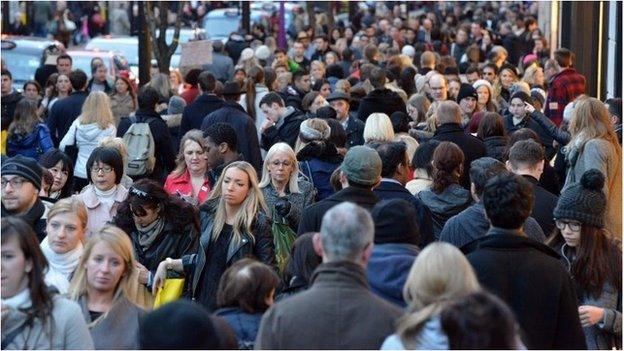
The UK population grew by almost half a million last year to 64,596,800. What might happen if it continues to increase?
Since the end of the 1990s the UK has been experiencing a population growth spurt.
Between mid-2013 and mid-2014 its population rose by 491,100 people, compared to an increase of just below 150,000 in 1996-97.
For some this growth represents a strain on public services and quality of life, while others believe it underpins economic growth.
The Victoria Derbyshire programme has been hearing differing viewpoints.
'We are wasting supplies'
Prof Jane Falkingham is director of the Economic and Social Research Council's Centre for Population Change.
"We happen to be alive at an incredible time in human history, where the world's population is undergoing a massive transformation," she says.
"It's difficult to take the UK out of the context of its situation in Europe, and then Europe's situation in the world.
"There will be issues around food, there will be issues around water," she adds.
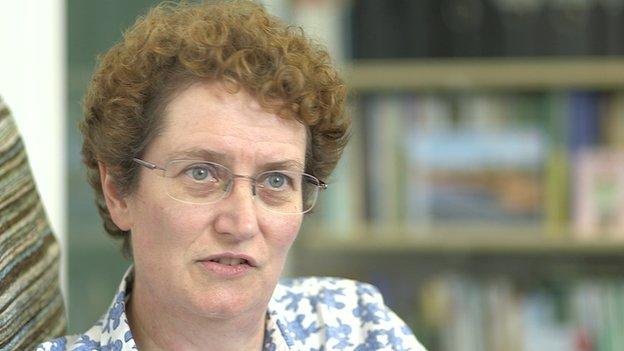
Jane Falkingham: Human beings are innovative
Prof Falkingham, however, believes the source of the problem is easily identifiable.
"Half of the world's food that we produce is wasted," she says.
"In the West, food is wasted after the point of purchase... and by cafes and supermarkets.
"In the developing world, half of the food goes to waste before it gets to market. They don't have the right pesticides or the right crops, so it either rots in the fields or it rots on the way to market," she explains.
But she says there is a sense of optimism: "I think human beings will find technological solutions to these problems."
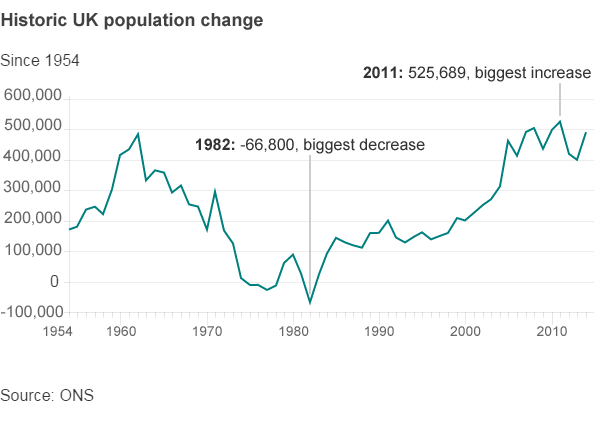
Prof Falkingham also believes that global population will reach a point at which it remains stable.
"Most experts think the world's population will stop growing at the end of this century and will level out somewhere between 10 billion and 11 billion," she argues.
This, she says, will be the result of a fall in the birth rate.
"In the past we had high fertility and high mortality. In the future we're going to have low fertility and low mortality," she explains.
In the UK, an average of 12.8 children were born per 1,000 inhabitants over the past five years, compared to 12.6 in France, 8.2 in Germany and 49.8 in Mali.
'We need family planning'
Simon Ross is chief executive of Population Matters, a charity that researches the environmental impact of population size.
"I really am worried about the future. We've got a high birth rate, and we're living longer," he says.
"If we don't start to stabilise our population the problems we're already facing will get much worse in terms of housing, transport, education and schools."
Mr Ross's greatest concern is that - with the UN's latest forecast suggesting the world's population will grow from its current 7.3bn people to 11.2bn by 2100 - food supply will come under pressure.
"The UK doesn't have enough food to feed itself... it has to bring it in from abroad," he says.
"And the fact that the countries [we import from] are growing and industrialising means we may not be able to get these resources from them in future."
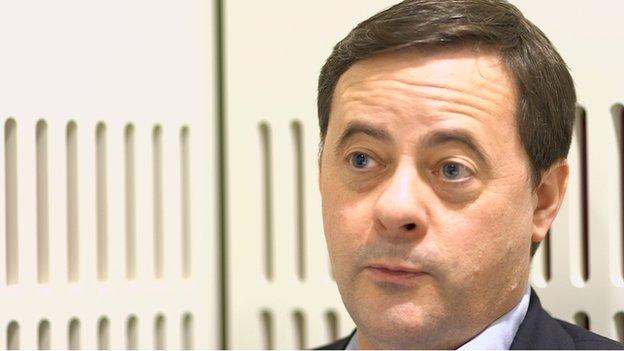
Simon Ross: I really am worried about the future
Mr Ross believes population control is necessary in order to stem current growth.
"I think for too long governments, and the UK government particularly, have done nothing about population," he argues.
"Family planning is very cheap, it's very reliable, it has great side effects in terms of empowering women, increasing household incomes and giving working women more time to work on their careers.
"Getting people to have one or two children is dead easy, because that's generally that's what's happening across the world anyway. It's irresponsible to have more," he adds.
But Mr Ross also has another concern that is shared by many - immigration.
Over half of the UK's population growth in 2013-14 came from an increase in net migration, totalling 259,700.
That is compared to 226,200 from "natural growth" - births minus deaths.
"We have to say to ourselves, 'why do we need to import all these workers to do our jobs'," he says. "Why haven't we got the skills in the UK?"
'We can find solutions'
Dr Jenifer Baxter is head of energy and environment at the Institution of Mechanical Engineers.
"The issue is not about how many people there are, it's about how we respond to the growth in population," she says.
"We can find engineering solutions to manage food, water, shelter, energy.
"We need to find other ways to travel, we need to find better fuels and we need to find more sustainable ways to farm," she argues.
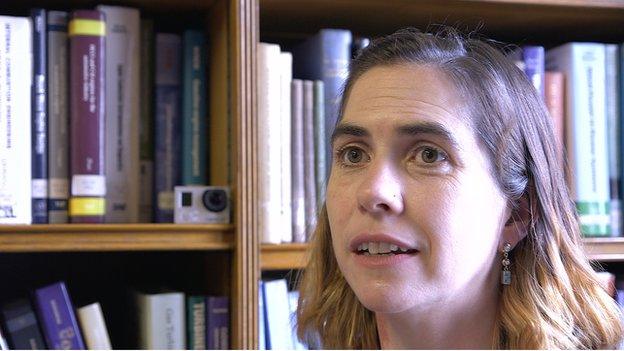
Dr Jenifer Baxter: We are all better off by having more people
But Dr Baxter also believes a growth in numbers brings with it economic and social benefits.
"With every population increase most countries will also experience an economic increase. We are all better off by having more people," she says.
"We've also been able to advance technology and farming. [We've made progress] in medicine and in transport that has led to economic increases and making sure people live longer."
But, she adds, "the degradation of the environment is where we've let things slip. As engineers we need to make sure technologies have minimal impact on the environment".
Watch Victoria Derbyshire weekdays from 09:15-11:00 BST on BBC Two and the BBC News Channel.
- Published25 June 2015
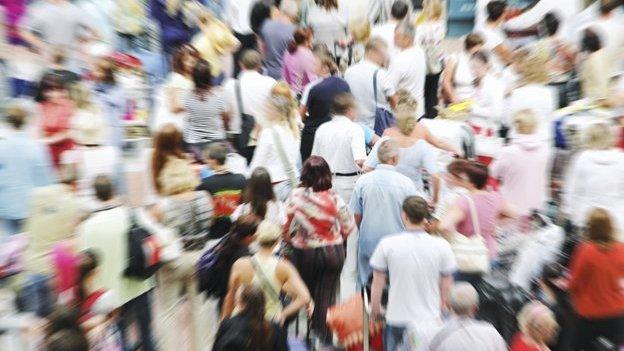
- Published16 June 2015
